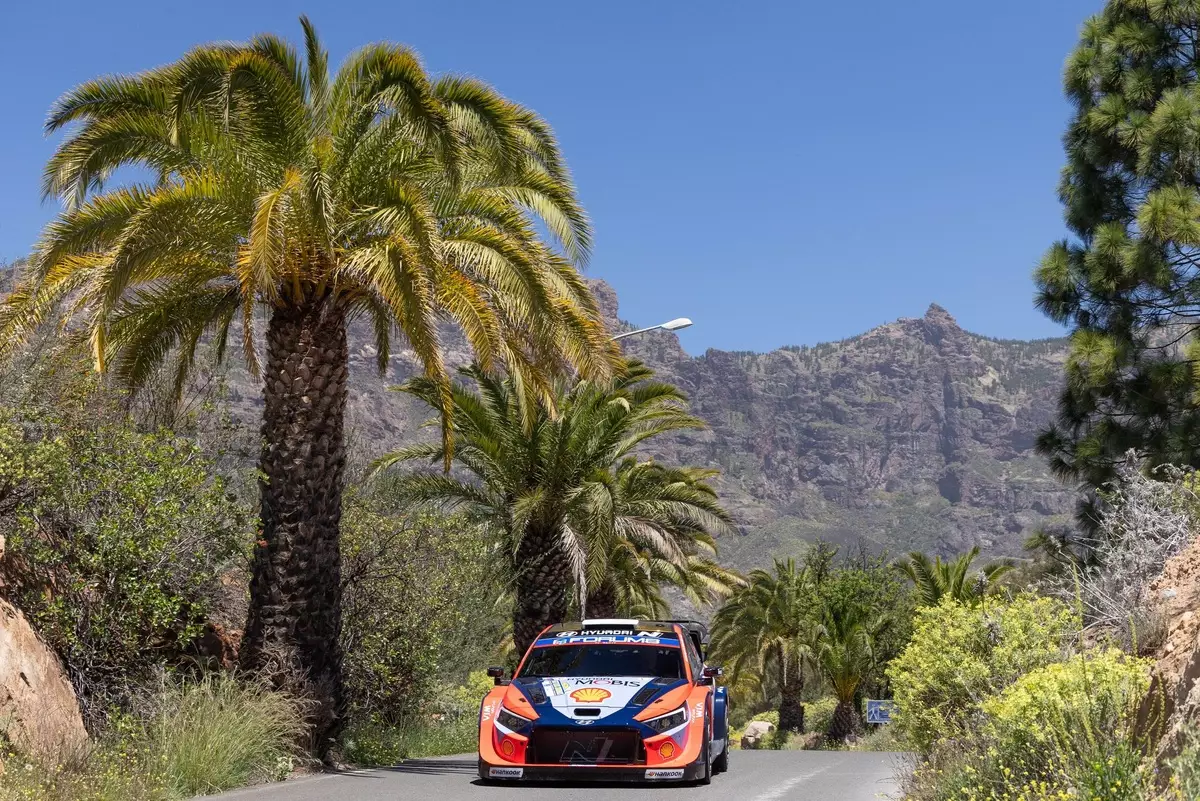Rally Resilience: Hyundai’s Lessons from the Canary Islands Challenge
In the fast-paced world of the World Rally Championship (WRC), every second counts, and preparation is key. Recently, Hyundai Motorsport faced a significant challenge in the Rally Islas Canarias, competing against their longtime rival, Toyota. Ott Tanak, a pivotal driver for Hyundai, openly admitted that the team was “clearly unprepared” for the unique demands of this particular rally. This admission strikes a chord in competitive motorsports, where even minor missteps can lead to major consequences.
Hyundai’s struggle wasn’t just about the tough terrains of the Canary Islands; it was also about tackling their first pure asphalt event of the 2025 WRC season. With Toyota securing a clean sweep of the top four positions, Hyundai’s performance revealed not only technical shortcomings but also highlighted gaps in strategic planning. This was a wake-up call for Hyundai—a reminder of how crucial adaptability is in such a competitive environment.
Key Takeaways
- Preparation and adaptability are critical in motorsports, especially in unique rally conditions.
- Technical issues and rigid strategies can hinder performance significantly.
- The importance of learning from setbacks and embracing resilience is essential for future success.
Technical Troubles and the Need for Adaptation
Hyundai entered the rally with high hopes, buoyed by Thierry Neuville’s impressive performance at an earlier Spanish rally. However, as the event progressed, it was clear that their cars struggled with the Canary Islands’ distinct conditions. Vehicle setup and handling became major concerns, preventing them from effectively utilizing their Hankook hard compound tires. This highlighted a critical need for flexibility and real-time adjustments in racing strategy.
A major issue was the differential selections made before the rally. These configurations were sealed and couldn’t be changed during the event, illustrating a common pitfall: inflexible pre-set configurations can be detrimental. Instead of focusing on maximizing performance, Hyundai found themselves using the rally as an extended testing session. This shift drained the competitive spirit that typically drives such events.

Insight from the Inside
Despite facing challenges from their rivals, there was some optimism within Hyundai’s camp. Adrien Fourmaux emerged as their fastest driver, securing fifth place but still trailing behind the leaders. His belief that Hyundai would identify and tackle these issues speaks to the team’s determination. Fourmaux insists that while the problems at Canary Islands were challenging, they shouldn’t overshadow Hyundai’s potential in future rallies with more asphalt stages on the horizon.
Tanak’s comments further emphasize an important point: addressing performance issues requires more than just quick fixes. It involves gaining a deep understanding of their car’s mechanics and adapting to various rally contexts. This realization calls for a shift in perspective—from merely trying to catch up with competitors to developing a comprehensive understanding of vehicle dynamics and optimizing them accordingly.
A Path Forward: Learning and Growth
Resilience emerges as a recurring theme among Hyundai drivers—an unwavering commitment to learn from failures and adapt dynamically. Tanak emphasized that this particular rally offered “big lessons,” reinforcing that setbacks can drive advancements in engineering and strategy. Embracing this mindset is crucial for turning adversity into opportunities for growth.
Fourmaux’s perspective adds another layer of optimism: viewing Hyundai as not just reactive but proactively responding to challenges. This insight instills confidence within the team, suggesting they are prepared to bounce back stronger with actionable insights from their Canary experience. The team is reassured that these issues are specific to this event rather than indicative of systemic flaws.

Looking ahead to upcoming competitions like the Central European Rally, Hyundai recognizes the importance of evolving through obstacles. With possibilities like a homologation joker still available, there is room for strategic changes that could enhance performance significantly beyond just one rally. This journey toward reclaiming supremacy may be challenging, but it’s precisely these hurdles that pave the way to enduring success in rally racing.
Final Thoughts
The experience at Rally Islas Canarias underscores an essential truth about motorsports: resilience is key. For Hyundai Motorsport, this challenge served as both a test and an opportunity to grow stronger and wiser. The lessons learned here will undoubtedly shape their approach moving forward—not just in terms of technical adjustments but also in fostering a mindset ready to embrace change and innovation. As they continue on this journey, Hyundai’s resolve to adapt and excel remains steadfast.
motorsport
rally racing
Hyundai Motorsport
World Rally Championship
resilience


Leave a Reply